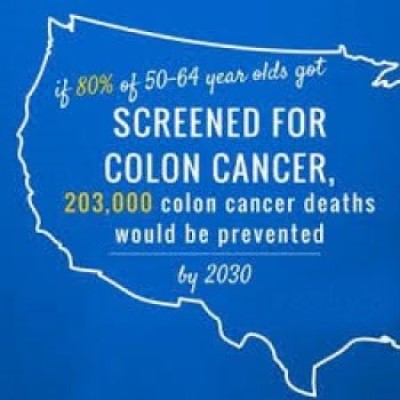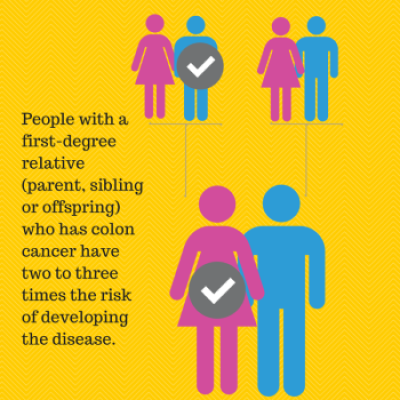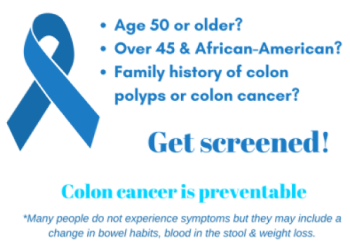Resources: Did you know?



Colorectal cancer is one of the most common cancers in New York State and the second leading cause of cancer deaths in the United States (second only to lung cancer) among men and women combined. It affects men and women of all racial and ethnic groups.
Many people don’t realize that this second-leading cancer killer is highly preventable with screening. Colorectal cancer arises from pre-cancerous growths or polyps that grow in the colon. When detected early, polyps can be removed, halting their progression to colorectal cancer. About 90 percent of colon cancers are curable when detected early.
Colon polyps and early colon cancers often have no symptoms. But warnings like blood in your stool; rectal bleeding; a change in bowel habits; unexplained weight loss; fatigue; anemia or constipation that lasts for more than a few days can be symptoms of colon cancer. It’s critical to consult a doctor, regardless of age, if these symptoms are present.
Today, about 1 in 3 adults—almost 38 million Americans between 50 and 75 years old—are not getting tested for colorectal cancer as recommended. The New York State Prevention Agenda in 2019 set a goal for 80% of all New Yorkers aged 50 – 75 to be screened.
Some stumbling blocks in reaching this goal is that many people don’t want to be tested or want to know, and some can’t afford testing or it’s not available.
A colonoscopy isn’t the only option for colorectal cancer screening. There are simple, affordable options, including tests that can be done at home like a FIT Test.
Knowing your family history is important. Although most colorectal cancers are found in people without a family history of colorectal cancer. Still, nearly 1 in 3 people who develop colorectal cancer have other family members who have had it. If you have a family history of colorectal polyps or cancer, you have a higher risk of getting colorectal cancer yourself. You may need to start getting screened for colorectal cancer when you are younger and be screened more often. Talk with your doctor about your family’s medical history and about which screening options are best for you. Ask which tests are covered by your health insurance.
New York State Cancer Services Program can help cover the costs of some screening tests. Go to GetScreenedRochester.org for more information about free or low-cost screening alternatives.